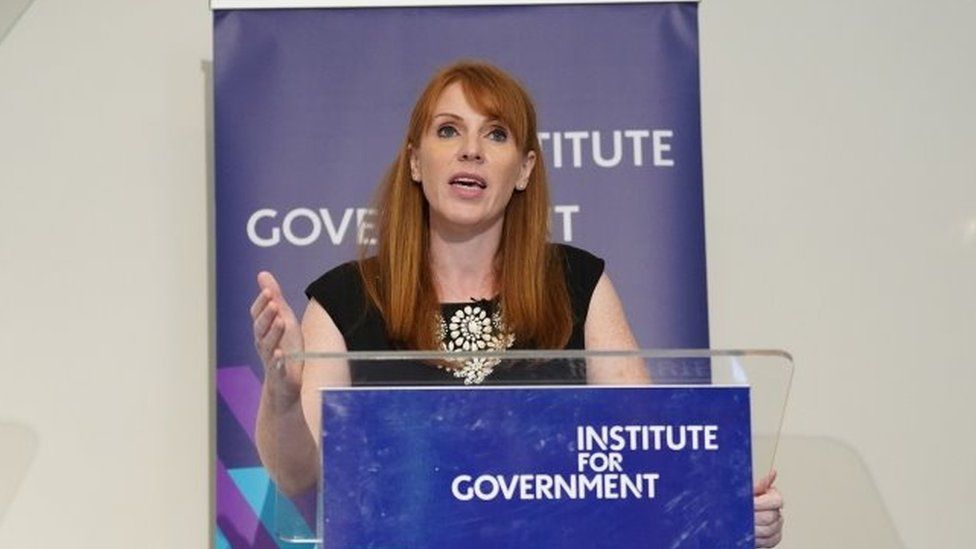ARTICLE AD BOX
 Image source, PA Media
Image source, PA Media
Labour deputy leader Angela Rayner said her party would "clean up politics"
By Joshua Nevett
BBC Politics
Ministers who leave government could be fined for breaching lobbying rules, under Labour's plans to reform the standards system for politicians.
Labour deputy leader Angela Rayner has set out proposals for a new watchdog with powers to recommend sanctions against ministers who break the rules.
In a speech, Ms Rayner said Labour would "clean up politics" after "Tory sleaze" had eroded standards.
The idea of a new watchdog were first announced by the party in 2021.
Outlining the proposals in more detail, Ms Rayner said an Ethics and Integrity Commission would streamline the standards system and bring in "tougher rules and stronger enforcement".
The plans include extending the ban on ministers taking up lobbying or other paid work connected to their government roles from two years to at least five after they leave office.
If the rules were breached, former ministers could face sanctions, including losing a proportion of their pension, or the severance payment they receive when they leave office.
Introducing a fine for breaching the lobbying rules was first suggested in a 2021 report by the Committee on Standards in Public Life, which advises the prime minister.
Ms Rayner said former ministers would face "consequences they can feel in their pockets", if the party won the next general election.
Westminster has been rocked by a string of lobbying scandals in recent years, with former ministers and MPs coming under heightened scrutiny for taking on second jobs.
Among them was former Conservative MP Owen Paterson, who resigned in 2021 after he was found to have broken lobbying rules.
PM's powers diluted
Ms Rayner said Labour's reforms were necessary because standards had slipped under the Tories, with a series of ministers - including Gavin Williamson, Nadhim Zahawi and Dominic Raab - forced out on misconduct grounds in recent years.
In a speech to the Institute for Government think tank, she said the current standards system had "been tested to the point of destruction" by the Conservatives.
The deputy Labour leader said the new commission would have the power to launch investigations and determine where rules had been broken.
It would replace the existing Advisory Committee on Business Appointments (Acoba) and the prime minister's ethics adviser, which critics have branded toothless.
Acoba recently reviewed whether Labour's leader Sir Keir Starmer's proposed appointment of former civil servant Sue Gray as his chief of staff risked undermining the rules, but found "no evidence" that her impartiality had been impaired.
Under the current standards system, the ethics adviser can open investigations into suspected ministerial wrongdoing only with the permission of the prime minister.
Ms Rayner conceded there would still be "a role for the prime minister" of the day under Labour's shake-up of the system.
The new commission's recommendations would be submitted to the prime minister, who would still be the ultimate arbiter of the ministerial code. That means the prime minister would still have the power to sign off sanctions, and hire and fire members of his cabinet team, as is currently the case.
But Ms Rayner said the "strong processes in place" would mean the prime minister would find it "impossible" not to take the action recommended.
Prime Minister Rishi Sunak took office promising to lead with "integrity, professionalism and accountability", and appointed Sir Laurie Magnus as his independent ethics adviser.
The Conservative Party said Labour wanted to "outsource ethics to a body of unelected bureaucrats chosen by Keir Starmer, instead of trusting Parliament to hold ministers to account".
"It's unsurprising to see that Angela Rayner doesn't trust the leader of her own party to oversee ethics in Whitehall," a Conservative spokesperson said.

 1 year ago
40
1 year ago
40








 English (US) ·
English (US) ·